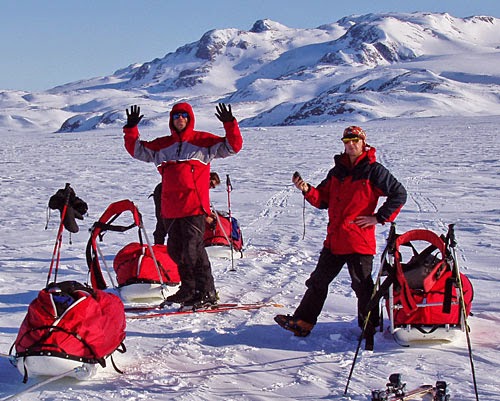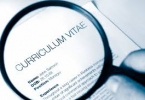Phân tích Đề Thi IELTS Writing Task 2 ngày 17/04/2021
Đề bàiIt is now possible for scientists and tourists to travel to remote natural environments, such as the South pole. Do the advantages of this development outweigh the disadvantages? |
Sample
Recent advancements in technology have enabled humans to travel to distant places in nature. This is scientifically beneficial to all societies, yet concurrent tourism activities can contaminate the pristine conditions of these places and negate the scientific benefits.
Being able to travel to these places is an unprecedented opportunity for scientific development and application, especially in the field of climatology. Scientists can now travel to pristine locations to collect live specimens, fossils and observe the local natural phenomena that may not have been documented before. For example, studying the layers of the ice cores from the North and South Poles has helped scientists to reconstruct the climatic trends and patterns which date back to millions of years. These findings can add valuable insights and revolutionise the way humans understand our environment in the past and the present. Recently, such findings have been extremely useful in the ongoing discussions on how to solve global issues such as global warming.

Despite unique opportunities it offers to the scientific community, traveling to unspoiled natural destinations could inflict irreparable damage on them when tourism is involved, thereby doing more harm than good. Littering and vandalism are two of some most pressing problems caused by tourism. For example, numerous mountain peaks which previously could only be reached by serious mountaineers have reportedly been polluted and defaced after the installation of aerial tramways which grants unrestricted access to all visitors. The aforementioned remote environments could suffer the same fate when waves of tourists frequently land there. Furthermore, the contamination brought to these locations by touristic activities could also interfere with the quality and accuracy of the scientific research carried out there.
In conclusion, exploiting remote natural locations for tourism could nullify the scientific values they offer and even cause permanent damage to these places. Only selected organizations and individuals who follow strict rules and regulations to preserve these places should be allowed to access.
(318 words)
Vocabulary
-
to contaminate /kənˈtæm.ə.neɪt/ (v): làm bẩn, gây ô nhiễm
-
pristine /prɪˈstiːn/ (adj): nguyên sơ
-
climatology /ˌklaɪ.məˈtɑː.lə.dʒi/ (n): khí hậu học
-
unprecedented /ʌnˈpres.ə.den.t̬ɪd/ (adj): chưa có tiền lệ
-
specimen /ˈspes.ə.mɪn/ (n): mẫu, tiêu bản trong khoa học
-
phenomenon /fəˈnɑː.mə.nɑːn/ (n, số nhiều = phenomena): hiện tượng
-
to date back to (expression): bắt đầu từ (năm nào đó)
-
irreparable /ɪˈrepərəbəl/ (adj): không thể khôi phục
-
insight /ˈɪnsaɪt/ (n): sự thấu hiểu, kiến thức sâu
-
ongoing /ˈɒnˌɡəʊɪŋ/ (adj): đang diễn ra
-
vandalism /ˈvændəl-ɪzəm/(n): việc phá hoại tài sản công (kể cả môi trường tự nhiên).
-
unspoiled /ˌʌnˈspɔɪld/ (adj): đồng nghĩa với pristine
-
to deface /dɪˈfeɪs/ (v): làm xấu đi, làm hư hại vẻ đẹp
-
aerial tramway /ˈeəriəl træmwei/ (n): cáp treo
-
mountaineer /ˌmaʊntəˈnɪə/ (n): vận động viên leo núi
-
aforementioned /əˈfɔːmenʃənd/(adj): đã được nhắc đến
-
to interfere /ˌɪntəˈfɪə/(v): gây gián đoạn, làm ảnh hưởng tiêu cực
-
permanent /ˈpɜːmənənt/(adj): vĩnh viễn
-
to preserve /prɪˈzɜːv/ (v): bảo tồn
(Nguồn: Sưu tầm)
بت 303 هات بت بت فوروارد بت فوروارد بت کارت تک بت بازی انفجار تخته نرد پوکر شرطی گل یا پوچ دنس بت جت بت سیب بت بت برو بت کارت کنون بت مل بت آیس بت ای بی تی 90 آس بت دل بت بت 90 حضرات بت تک بت بت برو بت بال 90 ای بی تی 90 بازی انفجار سیب بت سایت سیب بت دنس بت بازی انفجار سایت شرط بندی تخته نرد شرطی هات بت بت فوروارد ورود به بازی انفجار شرط بندی فوتبال پیش بینی فوتبال سایت بازی انفجار شرط بندی انفجار انفجار شرطی سایت شرط بندی انفجار گل یا پوچ شرطی پوکر شرطی انفجار هات بت پاسور شرطی شرط بندی گل یا پوچ تخته نرد شرطی شرط بندی پوکر سایت ریور پوکر شرط بندی بلک جک شرط بندی رولت سایت شرط بندی فوتبال بازی انفجار ضریب بالا معتبرترین سایت بازی انفجار بهترین سایت شرط بندی انفجار بازی انفجار با ضرایب بالا انفجار هات بت انفجار کازینو بهترین سایت های بازی انفجار سایت بازی انفجار بدون فیلتر اپلیکیشن بازی انفجار بازی انفجار شرطی سایت بازی انفجار رایگان سایت هات بت سایت شرط بندی هات بت هات بت بدون فیلتر سایت دنس بت بهترین سایت شرط بندی دنس بت بدون فیلتر سایت جت بت جت بت بدون فیلتر جت بت jetbet سنگ کاغذ قیچی سایت شرط بندی سایت شرط بندی فوتبال سایت تاینی بت سایت آیس بت آیس بت بدون فیلتر سایت سیب بت سیب بت بدون فیلتر سایت بت برو سایت کنون بت سایت بت 90 تخته نرد شرطی ضریب انفجار هات بت انفجار دنس بت دنس بت کازینو آنلاین بت برو فارسی وان ایکس بت بدون فیلتر سایت وان ایکس بت سایت بت فوروارد سایت تک بت سایت حضرات بازی انفجار رایگان سایت آیس بت سایت اصلی دنس بت سایت دل بت 90 سایت بت 90 سایت بت بال 90 سایت ای بی تی 90 سایت بت 365 سایت دو همدم همسریابی طوبی همسریابی توران همسریابی شمیم یار همسریابی نازیار همسر جون پستو چت سایت بهترین همسر دوست یابی بادو آغازی نو همسریابی همسریابی هلو نرم افزار همسریابی پیوند نرم افزار دوست یابی سایت زوج یابی سایت زوج یابی صیغه یابی آغازی نو همسریابی چت روم دوست یابی بهترین سایت همسریابی بهترین سایت همسریابی بهترین سایت دوست یابی بهترین سایت دوست یابی ورود به همسریابی همسر یابی همدم لاویتا همسریابی لاویتا دانلود اپلیکیشن لاویتا سایت lovita دوست یابی دوستیابی لاویتا سایت رسمی لاویتا دوستیابی آنلاین لاویتا دوست یابی song lyrics Top 10 lawyers











Bình luận